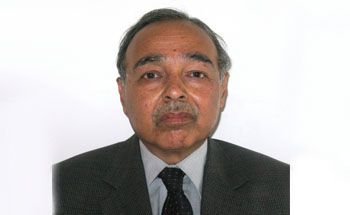
The amended Section 18 of the Act provides that authors of literary and musical works included in cinematograph films and sound recordings cannot assign or waive the right to receive royalties to be shared on an equal basis with the assignee of copyright therein for any utilization of such works, except when a film is shown in a hall.
However, the restriction doesn’t apply to rights that were vested in anyone before the amendments came into force. Thus, if rights in a future work were assigned before the amendments came into force, the rights under that assignment vest in the assignee even if the work comes into existence later. Again, the restrictions won’t apply if the work was created before the amendments came into force: this is because a full right to assign the work including the right to assign royalty rights is already vested in the author under the unamended law the moment the work was created. Further no royalty shall be payable for old works when they are exploited in post amendment era because producer was the first author in absence of any contract to the contrary.
The right to royalty for authors and composers is limited to so called publishing royalties in the underlying literary and musical works only and the master sound recordings right is an exclusive right of the producer/music labels; which is a separate right from the copyright in the sound recording.
The real problem is how to identify that royalty share precisely: what exactly is the author’s share of royalty on an equal basis in a given case, in the actual context of multiple rights existing in a film? To avoid painful litigation, producers/music labels and authors will have to find agreed ways of determining how to implement parliament’s mandate to give authors a fair deal. This is not going to be an easy process: there is too much simplistic euphoria around.
Also with regards to receiving royalties, unless the author has mandated IPRS to collect the author’s share directly from users licensed by the producer, it’s the producer’s job to collect the royalties and give the author his share. The author and producer can agree on the modalities of royalty payment. They can settle on an advance royalty with subsequent revenues being set off against the advance.
The newly inserted provision to Section 33 provides that the business of granting or issuing licenses for the literary, musical, artistic and dramatic works included in cinematograph films and sound recordings can only be done through a copyright society. Here the question arises whether a copyright owner, such as a music label, can continue to license such rights considering a music label is not in the business of issuing and granting licenses? However, the fact is that any copyright owner can license his own works, as the copyright society’s monopoly is in carrying on the licensing of third party works as a business.
The term performance is defined as a presentation made live by one or more performers, but it should be kept in mind that any performance by a performer is a live performance while being made. Under Section 38A performers have a right of fixation (to use the international term) of live performances and rights in fixed performances (i.e recordings of them).This means that their live performances can’t be recorded without their permission and that, once they have been recorded, they have rights in the recordings.
Further Section 39A makes Section 18 applicable to performer’s rights with necessary modifications and adaptations. So we wonder whether the royalty share mandated by Section 18 also entail a royalty share with performers. No, only performers (actors) in cinematograph work have a right to royalty under Section 38A(2) which also they can assign. But the non-assignable royalty share under Section 18 is for certain authors only; not for performers. However, singers as performers have been given certain rights u/s 38A(1), which are assignable and will place them in better negotiating position while determining their fee.
Jagdish Sagar has civil service experience followed by legal practice focusing on copyright and the entertainment sector. He has handled copyright for nearly five years as Joint Secretary in the Government of India, Ministry of HRD, during an eventful period when the TRIPS negotiations took place and our Copyright Act was amended extensively. He was the Indian representative on copyright at the TRIPS negotiations in Geneva, and also participated in numerous conferences organized by the World Intellectual Property Organisation. He was closely involved in the amendments eventually enacted as the Copyright (Amendment) Act 1994. Thereafter, until retirement from the IAS, he continued to be consulted by the Government on copyright matters and to be a member of its core committees. He has been actively practicing law, focusing on copyright and entertainment law since 2006.